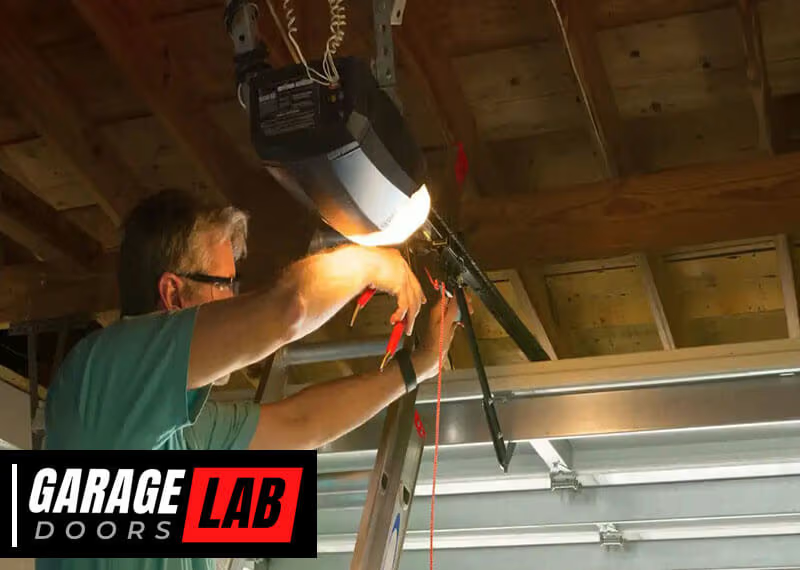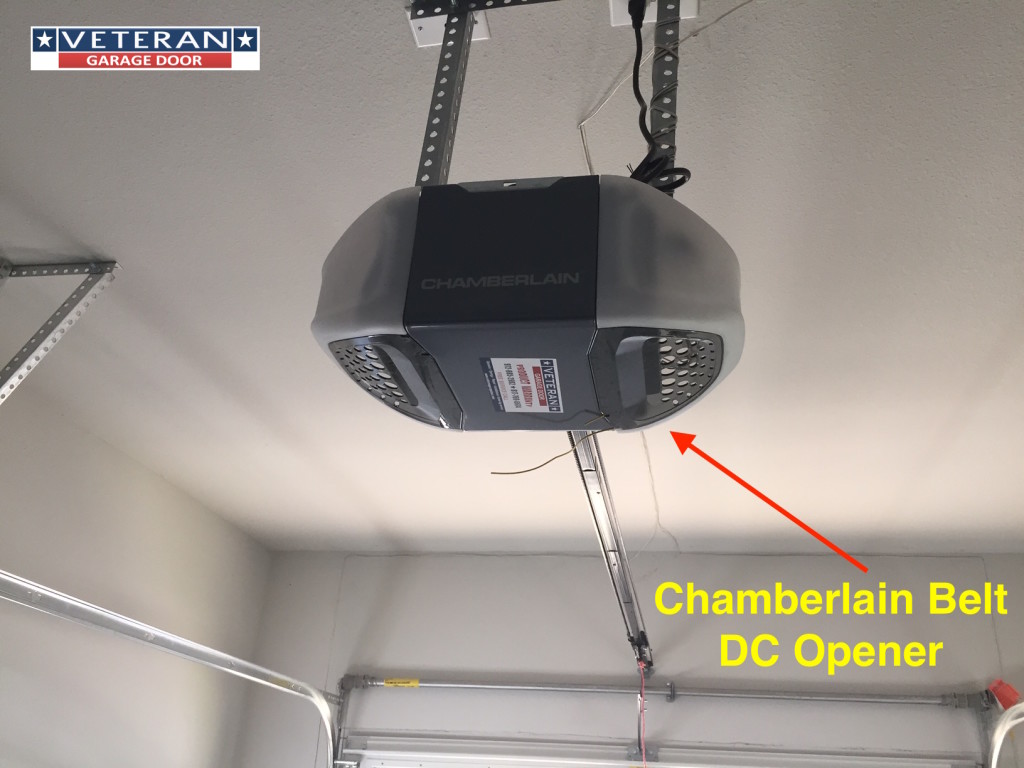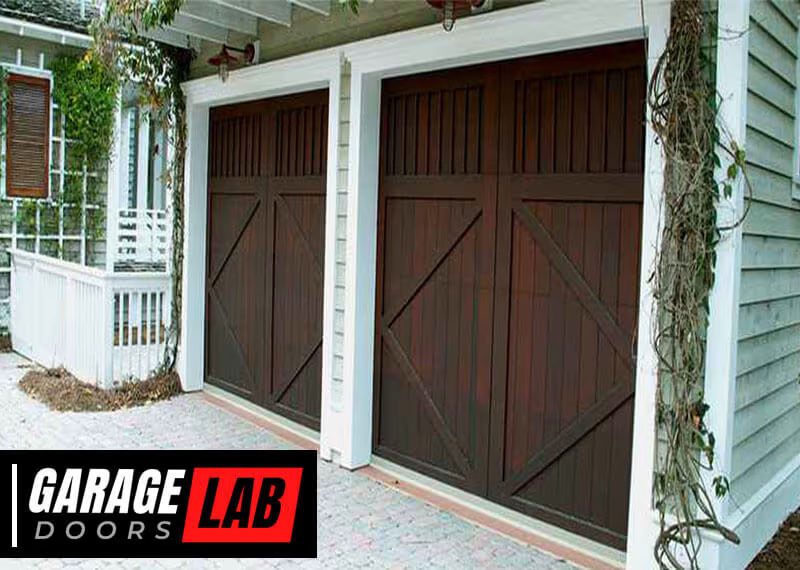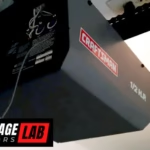Now Reading: Garage Door Opener Ac Vs Dc: Which is Right for You?
- 01
Garage Door Opener Ac Vs Dc: Which is Right for You?
Garage Door Opener Ac Vs Dc: Which is Right for You?

Are you in the market for a new garage door opener and feeling overwhelmed by the choices? You might be wondering whether an AC or DC model is the right fit for your home.
Choosing between the two can be confusing, but don’t worry, we’re here to help you make an informed decision. Understanding the differences between AC and DC garage door openers could save you time, money, and potential headaches down the road.
This article will break down the key features, benefits, and drawbacks of both options, helping you find the perfect solution tailored to your needs. Stay with us to discover which garage door opener will seamlessly fit into your lifestyle and enhance your home’s convenience.
Types Of Garage Door Openers
Explore the differences between AC and DC garage door openers. AC openers are often more powerful and durable. DC openers provide quieter operation and energy efficiency, making them ideal for residential use.
When thinking about upgrading your garage door opener, it’s essential to know the types available. The choice between AC and DC garage door openers often confuses many homeowners. Each type brings unique features and benefits. Understanding these can help you make an informed decision that suits your needs and lifestyle.Ac Garage Door Openers
AC garage door openers have been around for a long time. They are known for their reliability and durability. These openers use alternating current from your home’s electrical system.One of the main advantages is their power. They can handle heavy doors with ease. If you have a large or heavy garage door, an AC opener might be the right choice for you.However, they tend to be noisier than their DC counterparts. If noise isn’t a concern, or if your garage is detached from the house, this might not be an issue.Dc Garage Door Openers
DC garage door openers are the newer option. They use direct current and are often quieter and more efficient. This can be a big plus if your garage is attached to your home or near living spaces.A standout feature is their soft start and stop. This means the door opens and closes smoothly, reducing wear and tear on the door and the opener.They also support battery backup systems. This keeps your door functioning even during power outages. Consider if reliability during emergencies matters to you.Choosing between AC and DC depends on your specific needs. Do you prioritize power or silence? Is efficiency or cost your main concern? Reflect on these questions as you decide the best fit for your garage.Power Source Differences
Choosing between AC and DC garage door openers involves understanding power source differences. AC openers are powerful and suitable for heavy doors. DC openers offer quieter operation and energy efficiency, ideal for residential use.
When choosing between an AC and DC garage door opener, understanding the power source differences is crucial. The power source determines how your garage door opener functions and impacts both performance and energy efficiency. Let’s dive into the basics of each type to help you make an informed decision.Alternating Current Basics
Alternating Current (AC) is the standard power source used in most homes. This type of current changes direction periodically, making it ideal for high-power applications like garage door openers. AC garage door openers are known for their reliability and robust power, handling even the heaviest garage doors with ease.Many people prefer AC openers because they are typically less expensive. They offer a simple setup with fewer electronic components, which can lead to fewer maintenance issues. However, they might be noisier than their DC counterparts, which can be a concern if your garage is attached to living spaces.Direct Current Basics
Direct Current (DC) flows in a single direction, providing a steady stream of power. DC garage door openers are often quieter, which can be a significant advantage for noise-sensitive areas. This quiet operation can make a noticeable difference, especially if your bedroom is above or next to the garage.DC openers are more energy-efficient, often using less electricity than AC models. They can offer features like soft start and stop, which reduces wear and tear on the door and opener. This can extend the lifespan of your system, saving you money in the long run.Have you considered how the noise level or energy efficiency might impact your choice? The decision between AC and DC can significantly affect your daily life.Weighing the pros and cons of each option, think about your specific needs and garage setup. Whether you prioritize power, cost, or quiet operation, understanding these differences can guide you to the best choice for your home.Performance And Efficiency
Choosing between AC and DC garage door openers involves understanding their performance and efficiency. AC and DC motors offer unique advantages. Each has distinct features that impact their effectiveness. This section explores how these motors perform and consume energy.
Motor Performance
AC motors are known for their durability. They handle heavy loads well. This makes them reliable for larger doors. DC motors, on the other hand, offer smoother operation. They start and stop gently, reducing noise. This makes them ideal for residential areas. DC motors often have variable speed options. This can improve performance during opening and closing.
Energy Consumption
Energy usage is a key factor in garage door opener efficiency. AC motors typically consume more power. They are suited for continuous heavy-duty work. DC motors are more energy-efficient. They use less power during operation. This can lead to lower electricity bills over time. DC motors also support battery backup systems. This ensures functionality during power outages.

Credit: veterangaragedoor.com
Noise Levels And Operation
Choosing between an AC or DC garage door opener involves considering noise levels. The type of motor impacts how quietly and smoothly the opener functions. Understanding these differences helps you select the right option for your home.
Quiet Operation
DC motors are known for their quiet operation. They are often preferred in homes where noise is a concern. AC motors, on the other hand, tend to be louder. This is because they have a more robust mechanism. If your garage is attached to your home, a DC motor might be the better choice. It offers a smoother and quieter performance. This can be important if the garage is near living areas. DC motors also provide a soft start and stop feature. This reduces noise and wear over time.
Durability And Maintenance
AC motors are generally more durable. They have fewer electronic components than DC motors. This makes them less likely to fail. AC motors have a long lifespan, which can reduce maintenance needs. DC motors, while quieter, may require more regular maintenance. They have more electronic parts that can wear out over time. Yet, advances in technology have improved DC motor durability. Always consider the maintenance needs of each type.
Both AC and DC motors offer unique benefits. Understanding their noise levels and operation can guide your decision. Your choice can impact the comfort and convenience of your home environment.
Cost And Installation
Choosing between AC and DC garage door openers involves considering cost and installation. Each type has distinct initial costs and installation complexities. Understanding these factors helps in making an informed decision.
Initial Costs
AC garage door openers often come with a lower price tag. They are more budget-friendly upfront. DC openers tend to be pricier due to advanced features. These include quieter operation and smoother starts and stops. Consider your budget when selecting between the two.
Installation Complexity
AC openers are usually easier to install. Their straightforward design simplifies the process. DC openers may require more expertise. Their advanced features can complicate installation. Professional help might be necessary for some DC models. Factor in installation complexity before purchasing.

Credit: www.forestdoor.com
Smart Features And Compatibility
When choosing between AC and DC garage door openers, understanding their smart features and compatibility can make a huge difference in your decision. Modern garage door openers aren’t just about opening and closing your garage; they offer smart features that enhance convenience and security. Let’s dive into the specifics of what remote access and home automation integration can offer you.
Remote Access
Imagine being able to control your garage door from anywhere in the world with just a tap on your smartphone. That’s the power of remote access. Many DC garage door openers come equipped with Wi-Fi capabilities that allow you to operate your garage door remotely through an app. This can be a lifesaver when you’re not sure if you closed the garage door on your way to work.
AC garage door openers, while robust, may not always come with built-in smart features. However, you can often add them with additional smart devices. Consider this: you’re on vacation, and a neighbor needs to borrow your lawnmower. With remote access, you can open the garage for them without handing over a physical key.
Home Automation Integration
How seamlessly does your garage door opener integrate with your smart home system? DC garage door openers often have the edge here, offering better compatibility with platforms like Google Home, Amazon Alexa, and Apple HomeKit. This means you can use voice commands to manage your garage door, adding a layer of convenience to your daily routine.
Think about the possibilities: Your hands are full with groceries, and you need to open the garage door. Simply asking your smart assistant to handle it is a game-changer. While some AC models can also be connected to smart home systems, they might require extra components or hubs.
Are you someone who loves tech and automating your home? Then opting for a DC garage door opener might be your best bet. However, if you prefer a simpler setup or have an existing AC model, check for compatible devices that can extend smart features to your current system. What level of convenience and control do you want over your garage? The answer will guide your choice.
Environmental Impact
Choosing between AC and DC garage door openers impacts energy use. DC models are often more efficient, reducing electricity consumption. This choice can significantly affect environmental sustainability.
When considering the environmental impact of garage door openers, the type of motor—AC or DC—plays a significant role. Understanding the differences can help you make an eco-friendly choice that aligns with your values. Let’s explore how AC and DC garage door openers stack up in terms of energy efficiency and sustainability.Energy Efficiency
Energy efficiency is a critical factor in reducing your carbon footprint. DC motors generally consume less electricity than their AC counterparts. This is because DC motors adjust their power usage according to the task, whereas AC motors tend to operate at full power regardless of the load.Think about the long-term savings on your energy bill. A DC motor not only reduces electricity consumption but also minimizes wear and tear due to its smoother operation. Have you noticed how your appliances consume energy even when idle? DC garage door openers avoid this pitfall by using power only when needed.Sustainability Considerations
Sustainability is about more than just energy savings. It involves the durability and lifespan of your garage door opener. DC motors often boast a longer lifespan, which means fewer replacements and less waste.Choosing a product that lasts longer is a simple way to contribute to sustainability. Imagine reducing the frequency of replacing your garage door opener, thus cutting down on the resources needed for manufacturing and transportation.Additionally, some DC openers come with battery backup options, ensuring they work during power outages. This feature not only adds convenience but also reduces the need for emergency repairs that can be resource-intensive.As a homeowner, you have the power to make choices that align with your environmental goals. Which features matter most to you, and how can they impact your overall eco-friendly lifestyle?Choosing The Right Option
Choosing between AC and DC garage door openers depends on power needs and efficiency. AC models are robust and reliable, suitable for heavy doors. DC versions offer quieter operation and energy efficiency, ideal for residential use. Understanding these differences helps in selecting the right opener for your garage.
Choosing the right garage door opener can be a daunting task. With options like AC and DC motors, the decision becomes even more complex. Each type offers distinct advantages and fits different lifestyle needs. Whether you’re upgrading or installing a new system, understanding your personal requirements and budget constraints will guide you to the perfect choice.Assessing Personal Needs
What do you really want from your garage door opener? AC motors are known for their power. They can handle heavy doors with ease.DC motors, on the other hand, offer quiet operation. They’re perfect for homes where noise is a concern, such as having bedrooms above the garage.Think about your space. Is it a large, heavy door, or a smaller, lighter one? Also, consider the noise factor. If you have a sleeping baby nearby, a quieter DC motor might be a blessing. These small details can make a big difference in your daily life.Budget Considerations
Your budget plays a key role in choosing the right garage door opener. AC motors tend to be more affordable. If you’re looking to cut costs, they might be the way to go.DC motors, while pricier, offer advanced features. These include battery backup and smart technology capabilities. If you like tech-savvy solutions, investing a bit more could provide lasting benefits.Would you prefer saving money upfront, or investing in long-term convenience? Balancing these factors can help you make a decision that suits both your wallet and your needs.Remember, the right choice isn’t just about the motor type. It’s about how it fits into your daily routine and financial plan.
Credit: infinitygarage-doors.com
Frequently Asked Questions
Is An Ac Or Dc Motor Better For A Garage Door Opener?
AC motors are durable and cost-effective, suitable for heavy-duty garage doors. DC motors offer quieter operation, soft start/stop features, and battery backup options. DC motors are ideal for residential use due to their efficiency and advanced features. Choose based on your specific needs and garage door requirements.
How Do I Know If My Garage Door Opener Is Ac Or Dc?
Check the garage door opener’s manual or label. AC models usually have a transformer inside, while DC models use a battery backup. Look for power specifications, such as voltage and current type, on the motor or manufacturer’s website for confirmation.
What Is The Best Drive Type For A Garage Door Opener?
A belt drive is ideal for garage door openers due to its quiet operation and durability. It suits homes with bedrooms nearby. Chain drives are cost-effective but noisier, suitable for detached garages. Screw drives offer simplicity and less maintenance, working well in moderate climates.
Choose based on noise preference and budget.
What Is A Dc Motor On A Garage Door Opener?
A DC motor on a garage door opener uses direct current for efficient and quiet operation. It allows precise control, reducing noise and energy consumption. DC motors are known for durability and reliability, offering smooth and safe garage door movement.
Ideal for residential use, they enhance overall performance.
What Is The Main Difference Between Ac And Dc Garage Door Openers?
AC openers use alternating current, whereas DC openers use direct current. DC models are usually quieter.
Conclusion
Choosing between AC and DC garage door openers depends on your needs. AC openers are durable. They handle heavy doors well. DC openers are quieter. They offer smoother operation. Think about your garage door size. Consider the noise level you prefer.
Check the power source availability. Both types have benefits. Decide based on your priorities. Research different models. Compare features and prices. It’s important to find the right fit for your home. Make your choice. Enjoy the convenience of a reliable garage door opener.











